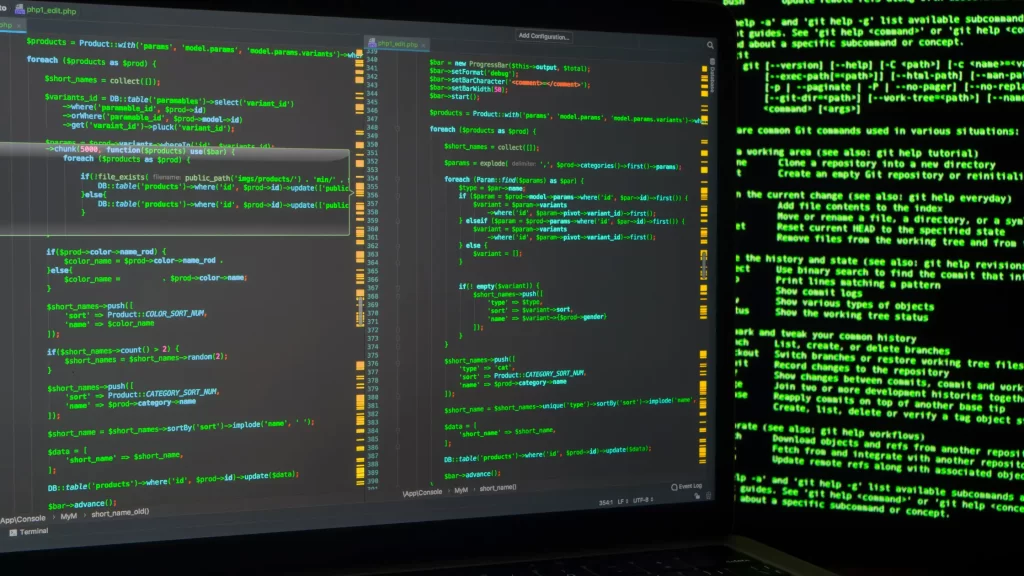Hacker Mindset Security: Outsmarting Cyber Threats

Hacker Mindset Security: Outsmarting Cyber Threats
In our digital world, cyber threats are a big concern for organizations. Staying ahead to protect our important assets is crucial. But imagine if the best defense is not what we knew before but how hackers think. We introduce you to hacker mindset security. This approach helps businesses think like hackers to beat changing threats.
Think about your business network working perfectly, data safely encrypted, and employees aware of the latest tricks. Would you be ready for a major cyber attack? The key to this top-notch security is understanding the hacker’s viewpoint. By learning about ethical hacking, penetration testing, and spotting weaknesses, we can turn your security system from acting after a threat to preventing it.

Key Takeaways
- Understand the hacker mindset and how to leverage it for robust cybersecurity
- Explore ethical hacking techniques and penetration testing to identify vulnerabilities
- Discover secure coding practices and defensive programming strategies
- Learn about social engineering awareness and incident response planning
- Embrace a proactive security approach to stay ahead of evolving cyber threats
Understanding the Hacker Mindset
Building a solid hacker mindset is critical to protecting your systems from cyber attacks. This mindset requires you to act as an attacker. It would help if you looked for weak spots that others could use to break in. With a security thinking approach, you can find and fix these issues before they’re misused.
Thinking Like an Attacker
To protect against cyber threats, you need to think like a hacker. Imagine you’re trying to break into your system. Look for ways in, check the controls, and find any mistakes. This penetration testing mindset helps you spot hidden vulnerabilities. It lets you find flaws that might have been missed when the system was first set up.
Identifying Vulnerabilities
Being aware of potential risks is vital for keeping your systems secure. You should regularly check for weaknesses in your systems and software, such as outdated programs or wrong settings. Doing this lets you fix problems upfront, making it harder for hackers to succeed.
At ARK Solvers, we stress the importance of an information security mindset and hacking psychology. By understanding how hackers think and using ethical hacking, you can protect your systems. This proactive approach helps keep your organization safe from the changing world of cybercrime.

Hacker Mindset Security: A Proactive Approach
A strong cybersecurity strategy is critical for every business today. It’s vital to think like a hacker to stay ahead of cyber threats. This means looking for and fixing security issues before they’re big problems. Let’s explore ways to think and act proactively to protect your company’s safety against cyber threats.
Thinking like a hacker to protect your company is essential. It helps security teams spot possible attacks and weaknesses. At ARK Solvers, we stress the importance of taking a hhacker’sview for better risk management and more robust security efforts.
Red team and blue team strategies work together for proactive security. The red team acts like a hacker, finding and using weak spots. The blue team protects, putting up defenses and watching for threats. This teamwork helps organizations fully understand and secure against threats.
Assessing risks and planning for attacks is a proactive step companies can take. By modeling potential threats, teams can better protect their systems. This method helps focus efforts and allocate resources smartly, leading to a more secure company.

The goal is to prevent cyber attacks, not just react to them. By prioritizing security and staying proactive, companies can keep ahead of threats. This proactive approach safeguards assets and builds trust with customers and partners in our digital world.
Ethical Hacking and Penetration Testing
Ethical hacking and penetration testing are key in the cybersecurity world. In these practices, testers act like hackers to find network weaknesses, which helps organizations better protect their important data.
Red Team vs. Blue Team
Two teams work together in ethical hacking: the red and blue teams. The red team aims to break in and find system flaws. The blue team is there to stop the red team and fix any found problems.
This setup aims to improve an organization’s security defenses. It teaches them where to get better and how to respond to attacks. It’s not just about blocking hackers but also about always being ready to learn and improve.
Vulnerability Assessment Techniques
Vulnerability assessments help find cyber attack entry points. Penetration tests mimic actual attacks on systems to find weaknesses. Scans use special tools to check for flaws in a company and suggest ways to fix them.
Combined with other security checks, these techniques give a complete view of cybersecurity. They help prioritize fixing the most dangerous issues, strengthening the organization against real threats.
Secure Coding Practices
We at ARK Solvers think secure coding is critical to strong and dependable software. It’s all about being ready and stopping threats before they happen. By making security part of every step in creating software, we lessen the chance of cyber attacks. This keeps essential data safe.
Defensive Programming
Defensive programming means always thinking about what could go wrong. This way, you build safety from the start—it is not just tacked on later. This mindset involves checking inputs, managing errors well, and using safe ways to talk.
- Input validation: Check every input closely to stop attacks like SQL injection and XSS.
- Error handling: Deal with errors carefully to avoid leaking information that attackers could use.
- Secure communication: Always use safe ways like HTTPS to keep secrets from being heard.
Code Review and Testing
To be secure, we must review our code often and test it a lot. With checks from security-focused coders and deep tests, we can stop trouble early. This way, we ensure our software is safe for our clients.
- Code review: Plan to review the code and fix any security issues.
- Vulnerability analysis: Check for weak spots in everything we use often.
- Penetration testing: Try to hack yourself to see if your defenses are good enough.
Choosing always to code safely, like at ARK Solvers, means we get ahead of cyber risks. We make reliable and safe software by focusing on smart coding, checking our code often, and testing for threats. This keeps our clients’ clients information and systems protected.
Social Engineering: The Human Element
In today’s world, people are the weakest link in defending against cyber threats. Social engineering is a big issue. Attackers use tricks to get people to give up secrets or put the company at risk. The ARK Solvers team is here to help. We focus on teaching employees strong cyber security knowledge, which reduces the danger from these tricks.
Attackers try to trick us in many ways. These include fake emails or messages that make us click dangerous links. They also pretend to be someone we trust, using our curiosity against us. Our team at ARK Solvers believes in training everyone well. When your team knows these tricks, they are less likely to fall for them, keeping your company’s defense strong.
Understanding Social Engineering Tactics
The very first step is learning what these bad guys do. Some main tricks used by attackers are:
- Phishing: Sending fake emails or messages to steal secrets or sneak into systems.
- Pretexting: Making up a believable story to get someone to share private info.
- Baiting: Leaving contaminated physical items, like USB drives, for people to find and use.
- Tailgating: Getting into a secure place by quickly following someone who’s.
Knowing these tricks helps everyone stay on guard. They can spot and report any strange or risky behavior.
Fostering a Cyber Security Mindset
It’s critical to ensure your team is thinking about security. ARK Solvers suggests constant training, fake phishing tests, and easy ways to report possible threats. When everyone is trained and ready, your defense is much more vigorous.
In the end, people are the most essential part of fighting cybercrime. Knowing the enemy’s strategy and keeping your team sharp is crucial. With the ARK Solvers team, the company can be more secure from these constant dangers.
Conclusion: Embracing a Hacker Mindset for Robust Security
This journey into the hacker mindset approach has shown us the importance of being proactive. It’s essential for keeping your organization safe from cyber threats. At ARK Solvers, we stress the value of knowing how attackers operate. This knowledge is crucial for defeating them and keeping your digital world secure.
Encouraging a hacker mindset culture in your team can do wonders. It boosts their awareness of cybersecurity. This means spotting and stopping threats early before they harm your business. It also helps your team always put security first. They learn to think smartly and be a step ahead.
Using hackers, such as ethical hacking and secure coding, can protect your business. These approaches cover everything, from testing for weak spots to training your team. They strengthen your security. With the right mindset, facing cyber threats becomes less scary. You and your team will be ready to keep your digital home safe for a long time.
FAQ
What is the hacker mindset, and how can it benefit cybersecurity?
The hacker mindset includes thinking like an attacker. This helps find weak spots and improve security. This approach lets security experts find and fix problems early. It also helps them build solid plans for when things go wrong.
What are the fundamental principles of the hacker mindset?
Hackers look for weak points, know how attackers work, think about security, and use hacking for good. They check security to keep organizations safe from bad actors.
How can secure coding practices complement the hacker mindset?
Making software safe is critical to building strong security. Things like checking code, writing it to stop attacks, and testing it well matter. Combined with a hacker’s hacker’s make, it is hard for bad actors to find openings.
What is the role of social engineering in the hacker mindset?
Using tricks on people, like social engineering, is a considerable risk. Hackers learn these tricks and find ways to stop them. This includes teaching employees to avoid such tricks and watching out for them.
How can red-team and blue-team tactics enhance the hacker mindset?
Red and blue teams both play a big part. Red teams act like attackers to find weaknesses. Blue teams defend and learn from attacks, making the system more robust.
How vital are vulnerability assessment and risk analysis in the hacker mindset?
Understanding the risks is crucial for hackers. They learn about an organization to focus on the most urgent ones, helping keep systems safer from new attacks.


